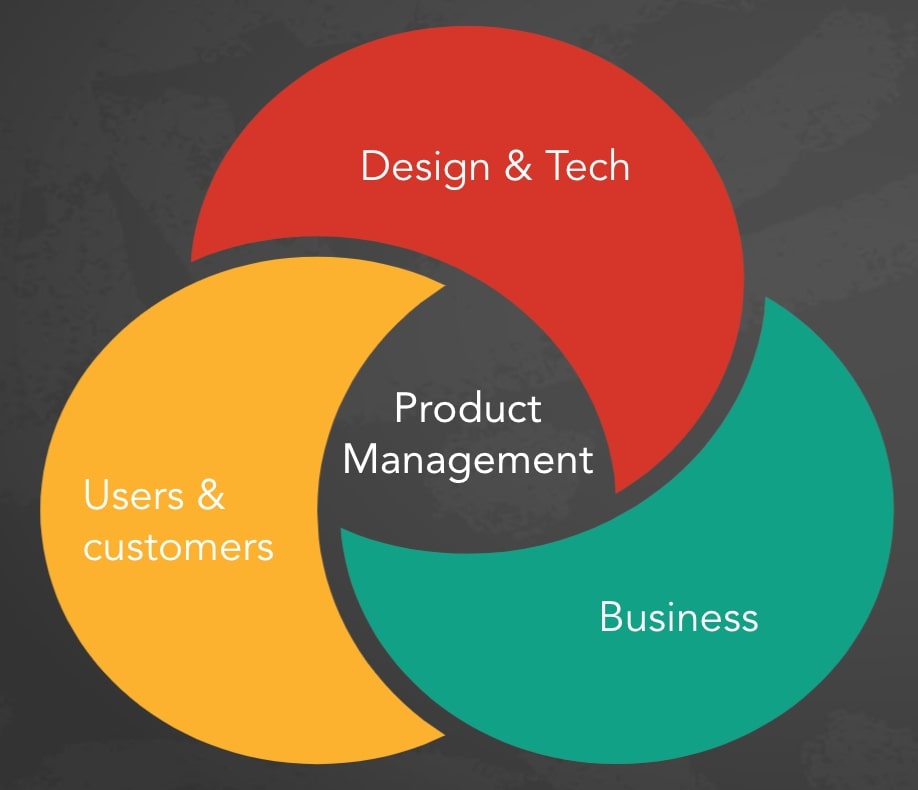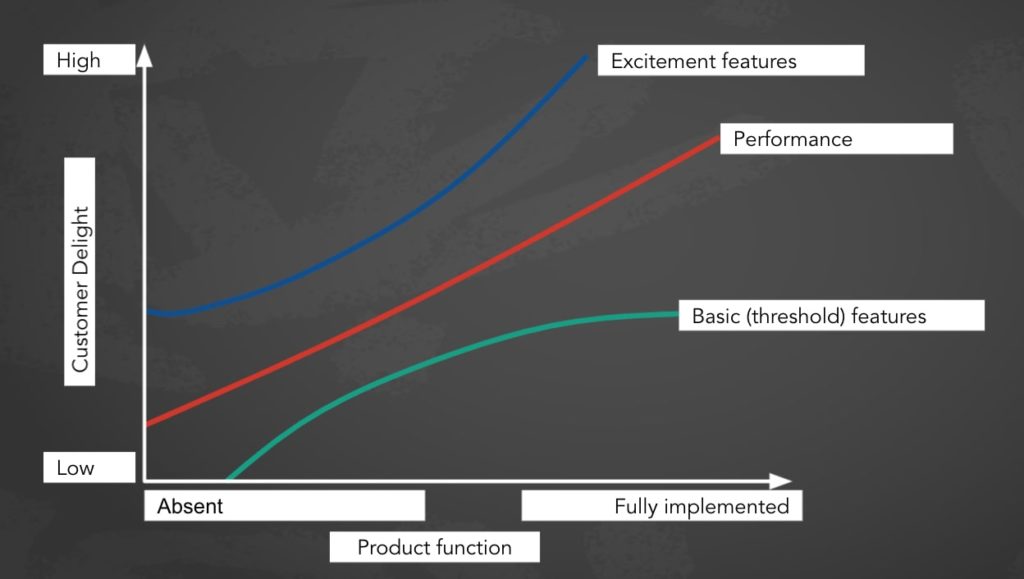People from several different backgrounds decide to become platform product managers and follow a rich and rewarding career that is varied, fulfilling, and well-paid. To thrive in the role, budding platform PMs need to learn technical and softer skill sets, such as effective customer research and road-mapping a product’s route to market.
This article describes all of the essential information needed to begin the journey to becoming a platform product manager.
Steps to Become a Platform Product Manager
Platform product management is a role that holds a lot of responsibility and requires proficiency in both technical and soft management skills. Here are the instructions on how to become a platform product manager:
1. Learn Fundamentals of Product Management
Enrolling in a product management course is the best way of ensuring the fundamentals of the role are learned.
Candidates learn the essential technical skills of the product manager’s role in a structured learning environment with the support of an instructor.
These skills are wide and varied, such as developing a go-to-market strategy covering positioning and pricing the product, creating a competitive analysis, status reports, UX design, wireframing familiarity, and development lifecycle methodologies such as Scrum.
The instructor provides feedback throughout the course and leads practical sessions to give candidates hands-on experience with the skills they’ve learned. Most PM courses include an assessment or exam ahead of the candidate earning a recognized certification.
Enroll in our top-rated product management certifications to learn the PM fundamentals:
2. Familiarize With the Product Management Process
Platform product managers find several problems landing on their desks throughout the product development phase.
Understanding the platform product management process helps PMs find quick and efficient solutions from the idea phase to the delivery and distribution of platform products.

By learning each step in the product management process, beginning with developing your product roadmap, through the design and creation stage, and ending with the final build and route to market, product managers see how each decision they make influences future elements of the business value the product lifecycle.
A good product management course helps build these high-level thinking skills needed to become a high-performing platform product manager, manage the product lifecycle, learn how to identify market opportunities and manage diverse teams, which requires a softer, less technical skillset.
3. Understand Your Line of Business and Industry
Every product is designed to fill a gap in a particular market or industry. Having a deep understanding of customer needs in the line of business and industry is essential for platform product managers to ensure the product they’re overseeing fills that particular niche or market need.
The platform strategy and product manager role intersects several different industry, tech, and customer experience areas.
Individuals seeking a career change into product management have done so with great success where they have a background in product design or development, UI or UX design, sales, marketing, data, computer science, or business.
Indeed, a platform product manager requires several different transferrable skills. Anyone with in-depth knowledge of a particular tech industry has the option of product management as a future career path.
4. Develop Your Projects
Developing a firm understanding of platform components and the technical skills required to become an effective platform product manager is a good start. However, it is only through putting these skills to practical use through day-to-day experience that budding platform product managers learn where they excel and which areas of the product management process need to be developed.
Taking on individual steps of the process is a good starting point for platform product managers unable to complete an entire product lifecycle.
Writing product strategy papers, building prototype products, or undertaking performance testing and analytics is an excellent way to gain experience and fix mistakes in a lower-pressure situation.
However, it is also essential to build collaborations with designers, coders, an engineering team, and other stakeholders to take practice products from ideas to reality and create more ambitious projects.
This collaboration helps some of the softer skills required to become a successful platform product manager, such as communication and cooperation between both users.
5. Create a Portfolio
A portfolio of work to showcase experience is a crucial step in achieving a platform product manager position.
Whether it comprises examples of work undertaken as part of a course, individual steps in the overall development process that have been achieved alone, or relevant experience in other jobs, the product management portfolio is the best way for candidates to sell themselves and their skillset during the interview process.
Focus on projects that have provided the most enjoyable and successful, and highlight the parts you played in them as individuals and as part of the wider development team.
Show examples of team leadership and driving collaboration between other platform components and core product teams, and don’t be afraid of discussing obstacles that were faced by the platform team throughout the period. This shows experience in trouble-shooting, a skill that is crucial for any successful platform project manager.
While there are many platform product manager roles advertised through online recruiters, one of the best ways to get your name known and work seen is by joining a professional body and networking with peers.
What Does it Take to Become a Great Product Manager?
Getting a job as a platform product manager is the first step of the journey; however, it’s essential to understand how strong interpersonal skills affect project success and long-term career hopes to get to the next level and become a great platform product teams manager.
These characteristics include:
Empathy
A great product manager has to deal with people throughout the product development cycle. Understanding what makes your platform team and individuals in external operating systems and environments tick is imperative to the success of a project. Whether speaking with customers, designers, or distributors, displaying empathy for the challenges they come up against is vital to delivering the product vision without hiccups.
Leadership
Product managers must communicate the product vision to the platform product team and several external teams, motivate them to share the vision and inspire teams outside their management arena to meet their goals. Influence, persuasion, charisma, and leading by example are essential ingredients to keeping everyone focused on achieving the platform’s features and end business goals.
Curiosity
A platform product manager should be an expert on the products and services their industry supplies, even outside their product’s focus. Learning the technical parts of their business area and how the marketplace evolves helps them stay ahead of the competition and identify gaps in the market. Curiosity also drives a platform PM through during the initial phase of product development as they conduct research, analysis, A/B testing, and help guide the product design.
Problem-Solving
The platform product manager role involves day-to-day fire-fighting. Unforeseen circumstances often crop up during the lifecycle, requiring a quick response from the platform product manager. However, problem-solving isn’t a tool for resolving issues as they arise; it’s a critical skill that platform product managers display at the start of the process by identifying a gap within the marketplace and innovating a product to address it.
Prioritization
Dealing with multiple product lines, internal stakeholders, cross-functional teams, multiple teams, and external vendors provides a platform product manager with several challenges.

Projects are often time-critical, so product managers display careful project management throughout, understand the pros and cons of these challenges, and prioritize to ensure that focus is honed on tasks that add value rather than zero-sum activities.
Communication
The platform world is collaborative. Not only does a platform product manager need to lead their team and integration with many others, but they also manage key APIs and report progress to leadership teams, investors, and other key stakeholders. In addition to traditional product managers, they lead rock-solid QA testing to ensure the product meets the end-user needs. Listening and communicating expectations and progress is essential for successful product line delivery.
Self-Management
Many platform product managers manage multiple products in parallel, creating functionality more akin to program management. This means careful management of each project, awareness of where each project is in its lifecycle, and the ability to self-motivate with a cool head under pressure to deliver on your personal and business aims.
Building the technical and soft skills outlined in this article is essential for anyone wanting to become a platform product manager, whether fresh out of college or seeking an exciting career change.
Final Remarks
Becoming a platform product manager requires a blend of technical acumen, strategic thinking, and strong communication skills. Aspiring managers must immerse themselves in the technology landscape, understanding both the technical and business aspects of platform development. Staying adaptable and continuously learning are key to navigating the ever-evolving challenges of platform management. Building experience through hands-on projects and cross-functional collaboration is essential. Ultimately, the role of a platform product manager is pivotal in shaping innovative platform strategies that drive business success.
FAQs
Here are answers to the questions that aspiring platform product managers frequently ask about getting into the platform product management realm:
What does a platform product manager do?
Here are the responsibilities of a platform product manager:
- Managing the Product Life Cycle: Platform product managers oversee every stage of the product’s life cycle.
- Managing Cross-Collaboration Across Teams: They are responsible for communicating changes, managing expectations, and meeting deadlines to deliver outcomes with success.
- Creating the Distribution Plan: They ensure that distributors are ready to receive and sell the product and ensure delivery is on budget.
How can I become a product manager?
To become a product manager:
- Build a strong foundation in business and technical skills.
- Gain practical experience by working on diverse projects.
- Develop expertise in product lifecycle management, market analysis, and user experience design.
How to prepare for a platform product manager interview?
Here’s what you must do:
- Improve the product management fundamentals such as product strategy, market analysis, and agile methodologies.
- Understand the specific platform’s technology and ecosystem.
- Practice interview questions related to decision-making and product scenarios.
- Prepare to discuss past projects with an emphasis on cross-functional collaboration and problem-solving.
If you are new to product management and are looking to break into your very first product manager role, we recommend taking our Product Manager Certification Courses, where you will learn the fundamentals of product management, launch your product, and get on the fast track toward landing your first product job.
